- Home
- Margaret Atwood
Murder in the Dark Page 2
Murder in the Dark Read online
Page 2
The other time I was carrying a basket of broken glass along a dock and I tripped and fell and cut my finger to the bone. I sat up and looked in, to my own body; there was no blood for a moment and I could see, it really was to the bone because there was the bone, not far down at all, shining up at me, white as an eyeball. I was older then so I put the basket down as soon as I heard those wings. The cut was right where the finger bends so there was no scar later, which I missed. You want to have something to show for it.
Worse things have happened since but the dark bird stays away. You faint when there’s something you don’t want to see, you can’t bear to see. Someday, the bird calls from its leafless tree very far away, in the land where there is no sun and no moon, I will be back, and by then you will find me merciful.
II.
Raw Materials
MUSIC Why do we travel? In other words, what are we doing here? Not much chance of a tan, it’s foggy, it’s the off season. Those who want romance are over by the bar, being serenaded by three men with very loud voices and musical instruments made of wood. Those of us who want instead the real experience, whatever it may turn out to be, are out here, sitting at little tables and doggedly eating shrimp from newspaper packets, squeezing lime on them and dipping them in salt, almost like experts, natives, while the grey sea sweats in the background. The real experience, that’s what we want, which means mescal with an authentic worm in the bottle. Still, you never know who you can trust. The worm could be faked.
This man doesn’t want romance or the real experience either. He’s here on business, he just wants someone to talk to. English, as he puts it. That’s me all right, though he doesn’t even like the shrimp. He’s young, thirty, I asked, with beautiful teeth and a blond moustache and a chin that doesn’t quite live up to the teeth. He smiles most of the time and has eyes that the naive might think of as candid. The accent suggests hound dogs and bourbon but he keeps it under control. He keeps everything well under control. He’s gone through one wife already, he tells me, he was away too much. There’s a lot of pressure.
This is his day off. Tomorrow he has to go elsewhere, to a nearby town. A ship’s master has disappeared. He was seen entering a whorehouse but he was not seen coming out. This man has to check out all the whorehouses in town, to find the right one. If the ship’s master can’t be located, dead or alive, the widow gets a million dollars, which naturally the ship-owners would rather not pay unless they have to.
Isn’t it dangerous? I say.
A whorehouse is the safest place around, he says. They have a reputation to keep up. I always get a policeman to go with me.
Then what? I say.
Mostly you just keep going till you dig up someone who knows the story, he says. Then you find out how much they want for it.
You mean bribery? I say, being from further north.
That’s how it works, he says. That’s how everything works. I like the Arabs, they’re right out on the table. They even write it down for you: how much they want and for what. You don’t have to pussyfoot around. Down here they make you guess, and if you guess wrong one way or the other they’re insulted. Either that or they think you’re a fool.
Aren’t you ever afraid? I say. Do you carry a gun?
If I get scared I get out, he says. I get scared a lot and I get out a lot. Nothing’s worth your life. He’s not saying this to be impressive, it’s merely what he thinks.
But you must like the travel, I say, hoping to redeem something for him.
He smiles a little, there isn’t much he likes. It’s work, he says.
I eat another shrimp, peeling it tail-first, wondering if this conversation counts as a real experience. There’s a musician coming towards us, he thinks we’re lovers, very soon we will be inundated by expensive sound.
A BEGGAR How was the food? they’ll say when you get back. Indescribable, you’ll say, and then you’ll proceed to describe it, which will amuse everyone. There is food, of course, though not always what’s expected. Try, for instance, to buy a pineapple.
We’re sitting around a tin table in the heat, drinking local beer and eating a mutation, a kind of raisin bun. Hanging on the wall behind us is a display demonstrating different kinds of knots. An old brown man comes in, shuffling in a way we find theatrical. He has only two teeth left and he needs a shave.
He smiles and wants to shake hands with everyone. We shake hands with him, all three of us, and smile. Possibly he can’t talk, or possibly he’s pretending he can’t. In any case, he makes a fist, to indicate (I think) marriage or sexual union, and points to my friend, then to the man I’m with. He’s got it wrong and we correct him, smiling all the time. He nods and does it all over again and everyone smiles furiously. We’ve always gone for the real experience but there’s something to be said for package tours.
He touches my shoulder and rubs the fingers of his right hand together. We aren’t sure what this means; we discuss it. He turns away impatiently and goes to the doorway, where he stands with his back to us.
I think he wants money, I say. Isn’t it bad luck not to give money to beggars?
His bent back is suddenly ominous. Who can tell what he’s thinking, what ill wishes he’s sending our way? We rummage for coins and find some, holding them in our hands just in case, and when he drifts our way – now he’s making the rounds – we give them to him before he even asks. We’re safe again.
But when our man, our protection, has left the table to pay the bill, the beggar comes back. He wants the remains of one of the awful buns, which lies on the plate chewed and soggy like something at a rained-out picnic. He points to the bun, then to himself. I give the bun to him and he takes it to the doorway to eat it.
Now we’re gathering bags and cameras, scraping back our chairs. The beggar is here again, elbowing in amongst us, more urgent than before. He isn’t smiling this time, he wants more and more. When will it stop? If we aren’t careful he’ll follow us to the hotel, climb walls, shove himself onto the plane with us, turn up some day on our front lawn. He’s refusing to play beggar any more, he isn’t letting us play tourists, embarrassed but benevolent, he’s making us angry, this is too much.
Go away, we say. We make shooing motions with our hands, as if he’s a bird. He smiles again, slipping back into his role, his costume, his wide grin of an idiot saint, two teeth, a mouthful of innocence and cunning. He’s almost relieved. He’s gone.
How was the food? they’ll say. Monotonous, you’ll say. There was a lot of chicken. Don’t eat the salads, you’ll get the glotch. Don’t drink the water.
PALENQUE I am afraid of heights but not of small dark spaces. You are afraid of small dark spaces but not of heights. What better place for us to go?
Tonight it’s chicken, pollo, the first word I learned, in chocolate sauce, and French fries, which like dandelions have infiltrated everywhere. We pay double what the man sitting next to us pays. He’s not only local but the police chief, he keeps his revolver on while he eats. The chicken skidding about on my plate in brown mud is the same as all the other chickens we saw, through the train window, also skidding about in brown mud, chased by dogs which in turn were chased by little boys who in turn were chased by women in long white embroidered dresses I haven’t yet learned to price at the market, under trees greener than green in the rain. Through the glass it looked idyllic.
In the morning we climb through steam rising everywhere from the plants, up the hill, scorning the tourist buses which pass us once in a while, not even full. Will it be worth it? we think. Worth it is what you get in relation to the discomfort you’ve invested. Whatever it is will have to make up for the bites, mosquito and flea, and the sawdust sandwiches on the train which everyone else knew better than to buy.
And here it is, one temple after another, miniature, perfect, almost alive still. But the steps are too steep, they were made so that you could never turn your back on the god, I can’t climb them. It’s not that I’m afraid of falling: heights go to
my head, I start to believe I can really fly.
Just keep looking ahead, you say. Don’t look behind you. You’ll be all right.
But I don’t believe it, I stay on the ground watching you go up and up, towards what? Something real. Envy impels me, I go around to the back, it’s not so bad here, I scramble up a mudslide and make it to the top.
There’s not much left up here but architecture and the minor messes of tourists. But now it’s your turn: steps that go down, inside the pyramid, towards the deepest and most exciting tomb in the guidebook. It’s dark and narrow and your knees start to give out. Holding hands, slipping on the wet stone, we descend.
This is where the slaves or wives were killed and left to guard the door, this was the door, blocked in; this is the final chamber. But they’ve taken everything out, the king, his extra golden face, the jade immortalizing him, it’s all in a museum a thousand miles away. The tomb is empty, as they tend to be. That wasn’t clear from the text.
What we remember is not the absent king but the fear.
THE JAGUAR THRONE We’re standing in line to see the Jaguar Throne. It’s almost Christmas now and everything is crowded, including the monasteries converted to ten-dollar-a-room hotels and the washrooms crammed with feet, in pastel sandals and the smell of orange peels and other things, and the crumbling hilltop temples with their inner walls luxuriant with graffiti, but this is the last chance we may ever have. Who knows when we’ll be passing this way again?
The Jaguar Throne is embedded in a pyramid. First you go through a narrow tunnel entered at ground level, a tunnel so narrow your shoulders touch each side, the old stone unpleasantly damp, with a skin on it like the skin on a stagnant pond. There is only one passageway. Those who have already seen the Jaguar Throne push past us on the way back, squeezing us against the skin of the wall, in their hurry to reach the outside air again. Eagerly we scan their faces: was it worth it?
There are a few small lightbulbs strung along the ceiling, a wire festooned between them. The ceiling itself is getting lower. The air is moist and dead. The line inches forward. Ahead of us there are backs, the necks sunburned, the shirts and dresses ringed with sweat beneath the arms. Nobody says anything, though the heavy air seems full of whispers. Ahead of us, up some steps, around corners, unseen, the Jaguar Throne crouches in a square cubicle, its ruby eyes glowing, its teeth vivid, its meaning lost. Who used it last, what was it for, why was it kept here, out of sight in the darkness?
The line of people moves forward into the absence of light. There must have been processions once, flames carried, dimming in the lack of oxygen, men in masks, willing or not. The Jaguar Throne was not always a curiosity, something to see at Christmas. Once there were gods who needed propitiation. Once they played a game here, in an outside court, with stone rings set into the walls. If your team lost they cut off your head. That’s what the carving is, the body of a man with a fountain in place of the head: the blessed loser, making it rain. Metaphor can be dangerous. Not everyone wants to see the Jaguar Throne but some see it anyway.
Ahead of us a woman screams. Panic runs through the line, you can feel it jumping from body to body, there’s a surge backwards: in a minute we’ll be stampeded, crushed. Then comes the rumour, the whisper: it was only a spider. We’re caught anyway, the tunnel’s jammed, we can’t move, we stand in the dead air listening to our hearts, and now we know the answer: the Jaguar Throne is kept in here so it can’t get out.
THE WATER GOD A long time ago this cave was sealed up. From the pictures they left you can deduce when: they were drawing creatures with six legs and metal heads, monsters, the monsters were swimming ashore from their huge white-winged boats, marked with evil and bad luck. They were burning the people and killing them with their sticks that licked out fire. This is what it looks like in the drawings. Now they were coming south.
The priests did not want the monsters to find the cave and use it for their own purposes. They broke the sacrificial bowls and the images of the gods, releasing their spirits. They left their baked clay breastplates of office lying shattered in the large cavern, the one with the central pillar smudged with handprints the colour of dried blood. They backed out of the cave, building walls as they went: one wall of cut stone and a second wall against which they piled rubble, to make it look like an accident, some shrug of the earth. Devoid of their magic, the priests disappeared into the people, whom they could no longer protect, who could not protect them, and like them they were butchered or enslaved.
Now we retrace their steps. In point of fact I would rather have stayed on the patio, in the yellow sunlight, drinking café con leche and watching the toucans in their cages, but in this country you are drawn to dark places. Bowing our heads, we pass through the first low doorway. The ceiling is not far above us, the roots of trees grow down through it, holding it in place. At the second doorway we must crawl.
Here is the entrance to the central cave, in which you can still smell fear and the oily light of torches. There are bowls at the foot of the pillar, masks, a face within a face, holes punched in them, the spirit gone. Branching off to the left is a corridor with a line of tiny altars: on each is a plate, no bigger than a doll’s dish, and on each plate is a single grain of dusty corn, placed carefully so the people would eat that year. Everything is still the way it was left.
At the end of the corridor there’s an underground spring, a shallow lake, the water clear as tears, tinged with blue. Pale blunt fish swim in it, probably blind. Out in the centre is the water god, sad-faced, floating on stone and twinned in the blue pool. We can’t tell whether or not he’s been broken. Possibly they thought the water god could take care of himself.
We walk back down the corridor, touching nothing, knowing that we have intruded, blundered upon a child’s serious and profoundly believed game, and we have spoiled everything.
III.
Murder in the Dark
This is a game I’ve played only twice. The first time I was in Grade Five, I played it in a cellar, the cellar of a large house belonging to the parents of a girl called Louise. There was a pool table in the cellar but none of us knew anything about pool. There was also a player piano. After a while we got tired of running the punchcard rolls through the player piano and watching the keys go up and down by themselves, like something in a late movie just before you see the dead person. I was in love with a boy called Bill, who was in love with Louise. The other boy, whose name I can’t remember, was in love with me. Nobody knew who Louise was in love with.
So we turned out the lights in the cellar and played Murder in the Dark, which gave the boys the pleasure of being able to put their hands around the girls’ necks and gave the girls the pleasure of screaming. The excitement was almost more than we could bear, but luckily Louise’s parents came home and asked us what we thought we were up to.
The second time I played it was with adults; it was not as much fun, though more intellectually complex.
I heard that this game was once played at a summer cottage by six normal people and a poet, and the poet really tried to kill someone. He was hindered only by the intervention of a dog, which could not tell fantasy from reality. The thing about this game is that you have to know when to stop.
Here is how you play:
You fold up some pieces of paper and put them into a hat, a bowl or the centre of the table. Everyone chooses a piece. The one who gets the x is the detective, the one who gets the black spot is the killer. The detective leaves the room, turning off the lights. Everyone gropes around in the dark until the murderer picks a victim. He can either whisper, ‘You’re dead,’ or he can slip his hands around a throat and give a playful but decisive squeeze. The victim screams and falls down. Everyone must now stop moving around except the murderer, who of course will not want to be found near the body. The detective counts to ten, turns on the lights and enters the room. He may now question anyone but the victim, who is not allowed to answer, being dead. Everyone but the murderer must tel
l the truth. The murderer must lie.
If you like, you can play games with this game. You can say: the murderer is the writer, the detective is the reader, the victim is the book. Or perhaps, the murderer is the writer, the detective is the critic and the victim is the reader. In that case the book would be the total mise en scène, including the lamp that was accidentally tipped over and broken. But really it’s more fun just to play the game.
In any case, that’s me in the dark. I have designs on you, I’m plotting my sinister crime, my hands are reaching for your neck or perhaps, by mistake, your thigh. You can hear my footsteps approaching, I wear boots and carry a knife, or maybe it’s a pearl-handled revolver, in any case I wear boots with very soft soles, you can see the cinematic glow of my cigarette, waxing and waning in the fog of the room, the street, the room, even though I don’t smoke. Just remember this, when the scream at last has ended and you’ve turned on the lights: by the rules of the game, I must always lie.
Now: do you believe me?
Simmering
It started in the backyards. At first the men concentrated on heat and smoke, and on dangerous thrusts with long forks. Their wives gave them aprons in railroad stripes, with slogans on the front – Hot Stuff, The Boss – to spur them on. Then it began to get all mixed up with who should do the dishes, and you can’t fall back on paper plates forever, and around that time the wives got tired of making butterscotch brownies and jello salads with grated carrots and baby marshmallows in them and wanted to make money instead, and one thing led to another. The wives said that there were only twenty-four hours in a day; and the men, who in that century were still priding themselves on their rationality, had to agree that this was so.
For a while they worked it out that the men were in charge of the more masculine kinds of food: roasts, chops, steaks, dead chickens and ducks, gizzards, hearts, anything that had obviously been killed, that had visibly bled. The wives did the other things, the glazed parsnips and the prune whip, anything that flowered or fruited or was soft and gooey in the middle. That was all right for about a decade. Everyone praised the men to keep them going, and the wives, sneaking out of the houses in the mornings with their squeaky new briefcases, clutching their bus tickets because the men needed the station wagons to bring home the carcasses, felt they had got away with something.

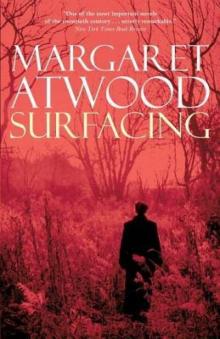 Surfacing
Surfacing Hag-Seed
Hag-Seed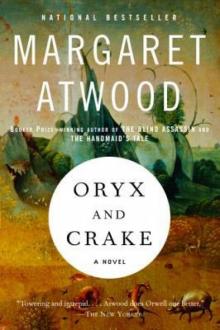 Oryx and Crake
Oryx and Crake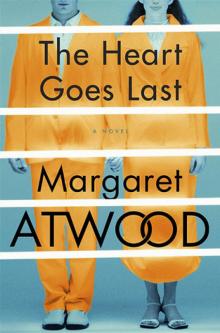 The Heart Goes Last
The Heart Goes Last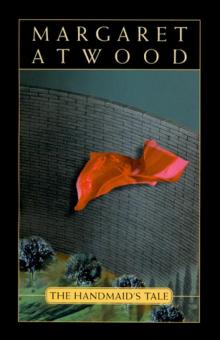 The Handmaid's Tale
The Handmaid's Tale Lady Oracle
Lady Oracle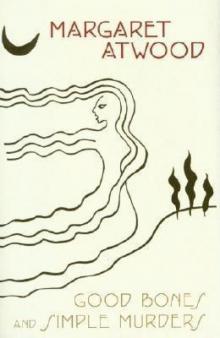 Good Bones and Simple Murders
Good Bones and Simple Murders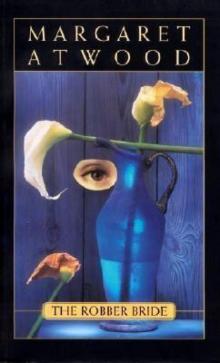 The Robber Bride
The Robber Bride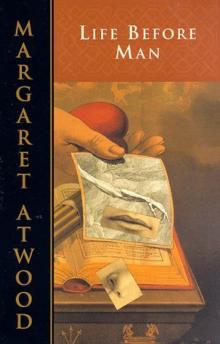 Life Before Man
Life Before Man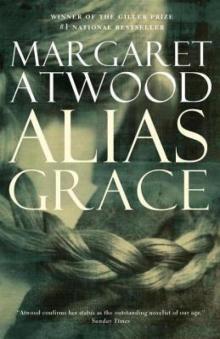 Alias Grace
Alias Grace The Blind Assassin
The Blind Assassin Cat's Eye
Cat's Eye The Testaments
The Testaments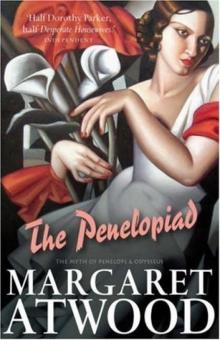 The Penelopiad
The Penelopiad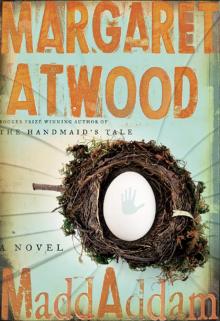 MaddAddam
MaddAddam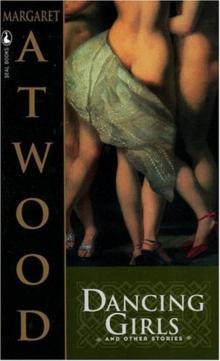 Dancing Girls & Other Stories
Dancing Girls & Other Stories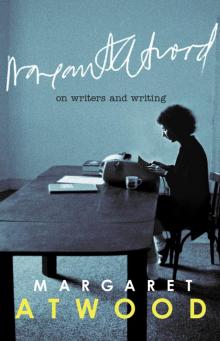 On Writers and Writing
On Writers and Writing Selected Poems II (1976-1986)
Selected Poems II (1976-1986) Wilderness Tips
Wilderness Tips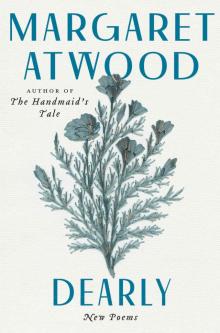 Dearly
Dearly The Tent
The Tent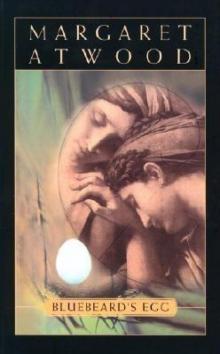 Bluebeard's Egg
Bluebeard's Egg The Edible Woman
The Edible Woman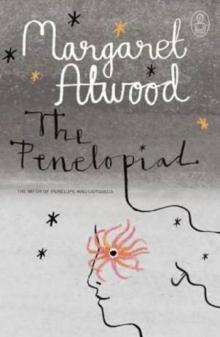 The Penelopiad: The Myth of Penelope and Odysseus
The Penelopiad: The Myth of Penelope and Odysseus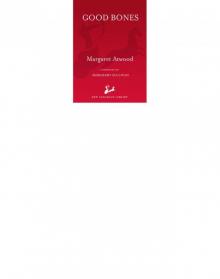 Good Bones
Good Bones I Dream of Zenia with the Bright Red Teeth
I Dream of Zenia with the Bright Red Teeth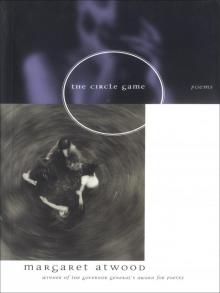 Circle Game
Circle Game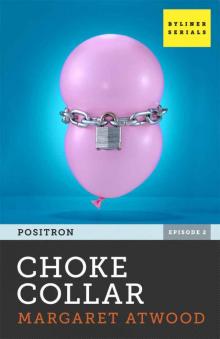 Choke Collar: Positron, Episode Two
Choke Collar: Positron, Episode Two Stone Mattress: Nine Tales
Stone Mattress: Nine Tales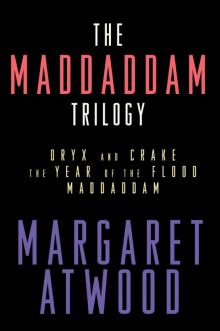 The MaddAddam Trilogy
The MaddAddam Trilogy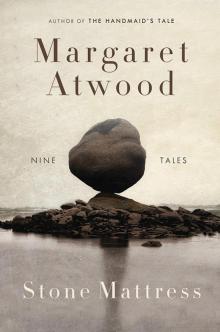 Stone Mattress
Stone Mattress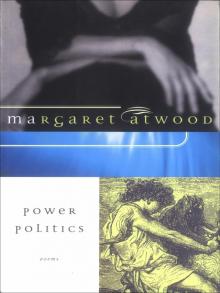 Power Politics
Power Politics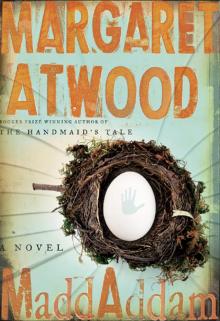 MaddAddam 03 - MaddAddam
MaddAddam 03 - MaddAddam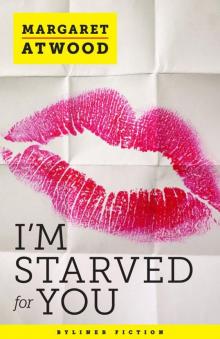 I’m Starved for You (Kindle Single)
I’m Starved for You (Kindle Single) Murder in the Dark
Murder in the Dark In Other Worlds
In Other Worlds Dancing Girls
Dancing Girls Moral Disorder
Moral Disorder